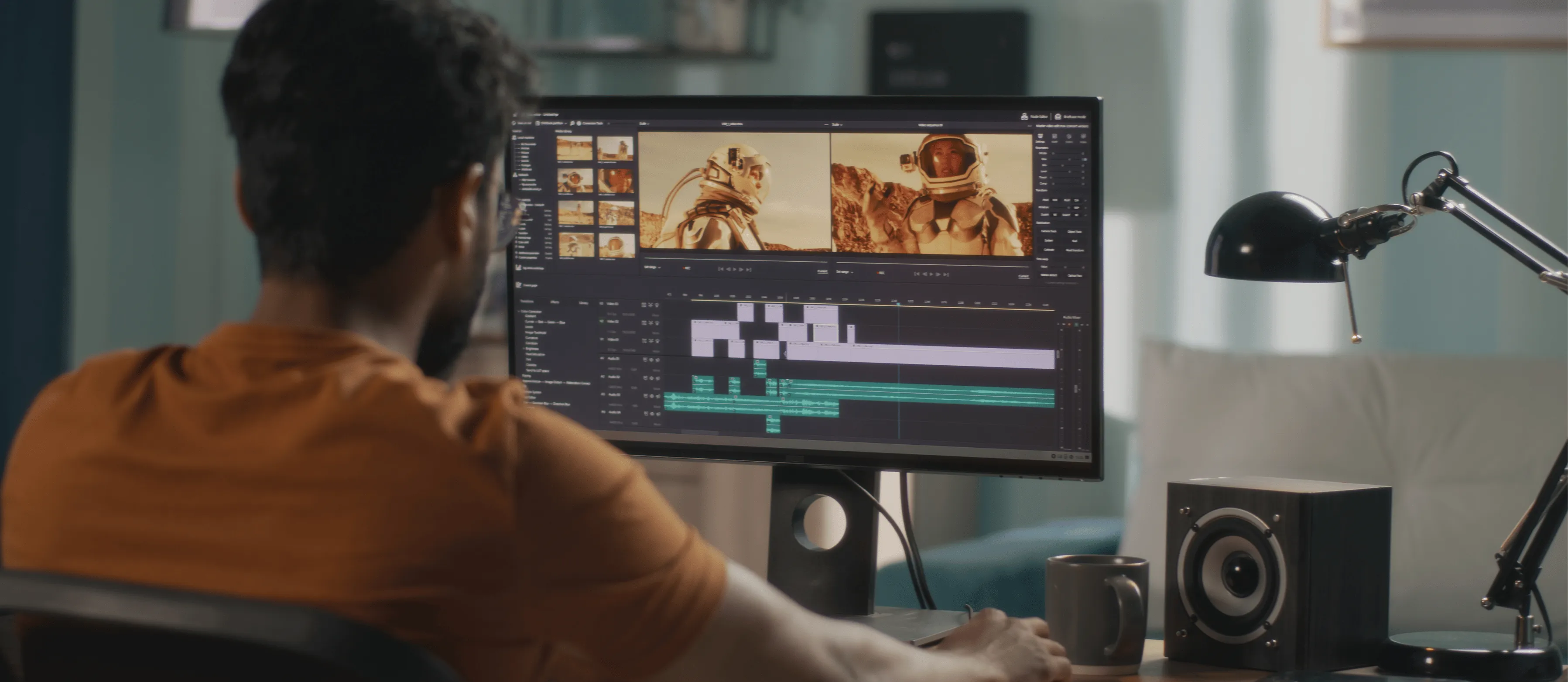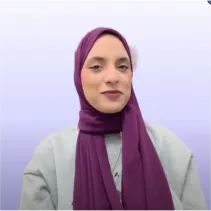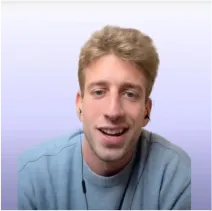Catena is now Pearl Talent! Same mission, new name.
What is a Video Editor?
A video editor is a creative professional who plays a crucial role in transforming raw footage into a refined, polished final product. From short YouTube videos to full-length feature films, video editors use their technical expertise and creative vision to craft stories that captivate audiences. Their work involves more than just cutting and arranging clips, it’s about shaping the narrative, enhancing visuals, and ensuring the video aligns with the intended message and tone.
In 2026, the role of video editors is more important than ever as content creation continues to skyrocket across platforms. Video editors have become essential not just in traditional media but in the booming digital spaces like social media, marketing, e-learning, and corporate communications.
Key Roles and Responsibilities of a Video Editor
1. Editing Raw Footage into a Final Story
The primary responsibility of a video editor is to take unedited footage and transform it into a coherent, engaging video. Editors cut and arrange shots to ensure a smooth flow, crafting the pacing, rhythm, and overall structure that tells the story effectively.
2. Enhancing Visuals and Sound
Beyond simple editing, video editors often enhance the footage with color grading, motion graphics, and visual effects (VFX). They synchronize sound, add background music, sound effects, and dialogue, and ensure that the video’s audio and visuals are in harmony.
3. Collaborating with Creators and Stakeholders
Video editors work closely with directors, producers, and clients to understand the vision for the project. They incorporate feedback and make revisions, ensuring that the final product meets expectations and reflects the creative vision.
4. Ensuring Technical Quality
Video editors also handle technical aspects such as frame rates, resolution, file compression, and exporting for different platforms. They ensure that the video meets industry standards and is optimized for various devices, platforms, and viewing experiences.
Benefits of Hiring a Video Editor
1. Professional-Grade Content
While anyone can use editing software, professional video editors bring years of experience and technical skill to the table, ensuring that the final product is high-quality, engaging, and polished. Their ability to manage intricate details makes a noticeable difference in the final outcome.
2. Time Efficiency
Video editing can be a time-consuming process. Hiring a skilled video editor allows you to focus on other aspects of the project, such as strategy or content creation, while ensuring that the video will be ready in time for its deadline.
3. Creative Expertise
Editors bring a combination of technical know-how and artistic sensibility. They understand how to convey emotion through timing, pacing, and visual cues. With their expertise, your content can stand out, whether it’s a high-stakes commercial or a social media post.
What Skills, Qualifications, and Certifications Should a Video Editor Have?
Video editors are the creative force behind professional visual content across industries. Whether working on a feature film, a YouTube series, a corporate promo, or branded social media content, their expertise shapes how stories are told on screen. To thrive in editing videos as a career in 2026, video editors need a mix of technical proficiency, creative vision, and platform-specific expertise.
Key Skills for Film and Video Editors in 2026
Proficiency in Industry-Standard Editing Software
Mastery of tools like Adobe Premiere Pro, Final Cut Pro, DaVinci Resolve, and Avid Media Composer is essential. Each software offers unique capabilities for different types of video editing workflows, from cinematic cuts to rapid social content.
Visual Effects (VFX) and Motion Graphics
Modern editors are increasingly expected to integrate basic motion design and effects. Familiarity with Adobe After Effects, Apple Motion, or similar tools allows editors to add titles, transitions, lower thirds, and visual effects that enhance viewer engagement.
Sound Design and Audio Editing
A great video isn't just about visuals. Editors must know how to clean, balance, and enhance audio using tools like Adobe Audition, Pro Tools, or built-in DAWs. This includes syncing voiceovers, integrating sound effects, and mixing music to build emotional resonance.
Color Correction and Grading
Using tools like DaVinci Resolve or Lumetri Color in Premiere, editors adjust exposure, white balance, contrast, and color to match the tone of the project and ensure visual consistency across scenes.
Understanding of File Formats and Export Settings
Video editors should be fluent in export standards for platforms such as YouTube, TikTok, Instagram, and broadcast. Knowing when to use formats like H.264, ProRes, or HEVC ensures cross-platform compatibility and high-quality final delivery.
Creative and Soft Skills That Set Video Editors Apart
Visual Storytelling and Narrative Structure
At the heart of great editing is storytelling. Editors must know how to pace a narrative, choose the right takes, and evoke emotion, whether it's drama, humor, suspense, or excitement.
Attention to Detail and Frame-by-Frame Precision
Successful film and video editors obsess over the little things, like frame cuts, audio sync, transitions, and even breathing room between clips. This eye for precision separates good editing from great.
Collaborative Communication
Video editors often work closely with directors, producers, marketers, and clients. Clear communication and openness to feedback are essential when interpreting creative briefs and implementing revisions.
Video Editor Job Requirements and Education
While many employers seek candidates with a bachelor’s degree in film, media production, or a related field, formal education is not always required. A strong portfolio demonstrating skill and versatility is often more important.
Increasingly, successful editors come from non-traditional paths with a majority being self-taught through YouTube tutorials, online platforms like Skillshare and LinkedIn Learning, or graduates of bootcamps and certificate programs.
Certifications That Boost Credibility and Career Growth for Video Editors
Pursuing certification is an excellent way for video editors to validate their skills and stand out in a competitive job market. Popular certifications include:
- Adobe Certified Professional (Premiere Pro) – Proves advanced competence in Adobe’s flagship editing tool.
- Apple Certified Pro – Final Cut Pro X – Ideal for editors working in Mac-based or documentary-style environments.
- Blackmagic Design: DaVinci Resolve Certification – Recognized for excellence in color grading and high-end post-production workflows.
- Certified Motion Graphics Designer (various platforms) – For those specializing in visual effects and animated sequences.
Different Types of Video Editors
The video editing field has grown to include a variety of specialized roles. Depending on the project, some businesses may need an editor with experience in specific areas:
1. Film and TV Editors
These editors work on feature films, TV shows, documentaries, and miniseries. They handle long-form content and are skilled at storytelling, pacing, and adhering to the director's vision.
2. Commercial and Ad Editors
Video editors in advertising work on TV commercials, online ads, and branded content. They must be fast and efficient, crafting engaging content that resonates with audiences within short time frames (often 30-60 seconds).
3. Social Media Editors
Social media content needs to grab attention quickly and be optimized for platforms like Instagram, TikTok, YouTube, and Facebook. Editors specializing in this area understand the unique requirements of different platforms and know how to optimize content for maximum engagement.
4. Corporate Video Editors
Corporate video editors handle internal videos, training content, explainer videos, and promotional materials for businesses. They focus on clear communication and professional tone, ensuring that the message is effectively conveyed.
5. YouTube Editors
These editors focus on YouTube content, from vlogs and tutorials to product reviews and entertainment videos. They need to be quick, creative, and highly skilled in editing for engagement, as YouTube videos often require a specific rhythm and visual appeal.
6. Music Video Editors
Music video editors focus on syncing footage with music, creating dynamic, visually stunning videos that capture the essence of the song. They work closely with directors to create a visual narrative that complements the music.
7. Motion Graphics and VFX Editors
These editors specialize in integrating complex motion graphics and special effects (VFX) into video content. They work on projects that require visual enhancements beyond standard editing, like video games, advertisements, or feature films.
Industries in Need of Video Editors in 2026
Video editing is in high demand across many industries, especially as video content continues to be a key tool for marketing, education, and entertainment. Here are some industries where video editors are especially needed in 2026:
1. Entertainment and Film Industry
With the rise of streaming platforms and an increasing number of independent films, the demand for editors in this space is growing. Editors skilled in long-form content, special effects, and post-production workflows are crucial.
2. Marketing and Advertising
Brands and agencies need video editors for creating commercials, promotional videos, social media content, and branded films. As companies continue to shift focus to video-first marketing, skilled video editors will be essential in shaping their messaging.
3. E-Learning and Corporate Training
Video is one of the most effective tools for training and education. Corporations and e-learning platforms are increasingly relying on video content for training modules, online courses, and corporate communication, driving up demand for corporate video editors.
4. Social Media and Influencer Content
The rise of social media influencers and YouTube creators means an ongoing need for content editors who specialize in quick, engaging videos optimized for various platforms. Editors skilled in making videos stand out in crowded feeds are in high demand.
5. Technology and Gaming
The gaming industry and tech companies also require editors for game trailers, promotional videos, and user experience content. Video editors in this space often work with motion graphics and VFX to create visually stunning content.
6. Nonprofits and Advocacy
Nonprofits are increasingly using video to promote their causes, tell impactful stories, and engage their audience. Video editors who can help create emotional, compelling content are in demand within this sector.
How Much Does It Cost to Hire a Video Editor?
In the United States, the average salary for a full-time video editor is approximately $76,680 per year, or $32.91 per hour, according to recent data from Indeed (July 2026). Salaries can vary depending on factors like experience, industry, and location. For instance, video editors in major cities or those with advanced skills (such as 3D animation, motion graphics, or VFX) may command higher rates.
For businesses that don’t need a full-time video editor, freelance or part-time video editors offer a flexible alternative. Freelancers typically charge on an hourly or per-project basis depending on the complexity and duration of the project. Freelancers are a great option for creating video content for short term projects in social media, commercials and promotion.
To reduce costs, many companies are turning to offshore video editors through agencies like Pearl Talent. Hiring skilled video editors from regions like the Philippines, South Africa, and Latin America can provide comparable expertise at rates up to 60% lower than U.S.-based hires.
Pearl Talent operates on a Managed Services model, with a monthly fee of $3,000 per hire, which includes payroll, training, and compliance. This model also offers free replacements if needed, making it an efficient, cost-effective option for businesses looking for high-quality video editing support without the overhead of full-time U.S. hires.
Get Support from Experienced Video Editors Through Pearl Talent
Whether you're creating marketing videos, training content, or a cinematic masterpiece, hiring the right video editor can make all the difference. At Pearl Talent, we don’t rely on random job boards or marketplaces. Our access to elite global talent comes from years of building exclusive networks and direct partnerships with professors at top universities, prestigious local companies, and respected industry leaders across the Philippines, Latin America, and South Africa.
While other hiring agencies scavenge job boards, we tap into carefully guarded talent pools, bringing you sharp, ambitious video editors who wouldn’t typically consider traditional staffing agencies.
Get started with Pearl Talent today and bring your vision to life!
Hire Expert Video Editors Now →
Frequently Asked Questions
Originally Published
August 7, 2025




.svg)


















